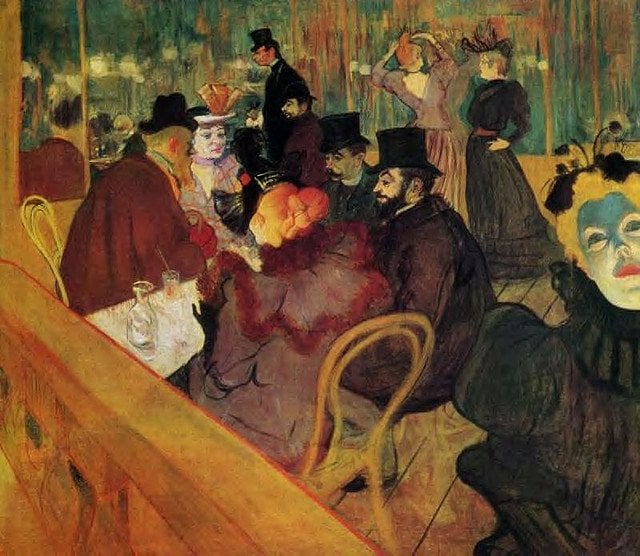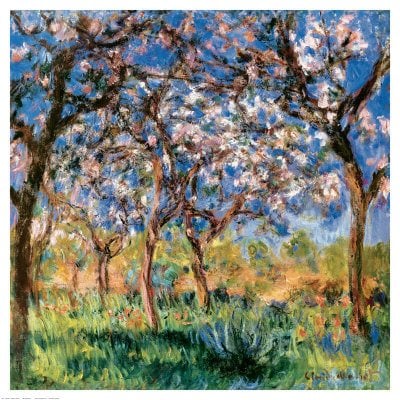Art is a way of expressing beauty, emotions and feelings. It can help us make sense of the world we live in. Jerome Stolnitz argued that it cannot generate truth or knowledge, unlike science and math.
The ancient Greeks had great arguments about this. Plato thought that the literary arts were only useful in stirring our emotions and overindulgence might lead to a certain imbalance. Aristotle thought art was important in providing a certain emotional catharsis so that we could help ourselves to come to terms with tragic emotions. He saw it as being much more beneficial.
Let us look at 10 things that you can learn from art.
1. Art can help us to be creative
We might see a painting in a gallery or simply take a photo of a sunset. These are all expressions of art. They bring out the creativity in us. We may want to draw something or play around with different apps on our phone to turn a simple photo into something original and beautiful. You can play around with the bubbly effect, Monet impressionism, artsy spirals or adding words. Yes, there’s an app for those and many more!
2. Music can lift you up
If you play an instrument, you have so many opportunities for expressing your mood. Even just playing around on the guitar can be therapeutic. You might choose to listen to rock, rap or a classical symphony. Studies show that listening to upbeat music really does affect your mood positively.
3. Writing as therapy
When I was a teen, I wanted to express some thoughts through poetry so I sent some poems to a publisher. Unfortunately, they were turned down. The rejection letter stated that “there would be little demand for this work on the general market.” My career as a poet ended there but I have continued to write articles, fiction and diaries all my life. Writing enabled me to express emotional trauma and other frustrations. It was a safety valve. Even if you never write a story or poem, writing down your thoughts and feelings is great therapy.
4. A painting can stimulate curiosity
Let us look at the painting, At the Moulin Rouge (1892/5) by Henri de Toulouse-Lautrec. It can stimulate a curiosity about night life in 19th century Paris, the social mores in vogue at the time, fashion, the life of Toulouse-Lautrec and his difficulties caused by his unusually short stature. The more we find out, the more we want to read and discover what life in Paris was like at the time.
5. Any work of art will help us appreciate beauty
It may be a sculpture, a painting, a sunset, a poem, a story. Whatever it is, we should try and think about it because there is beauty here. We can lose our emotional baggage and get lost in the contemplation and wonder of that beauty.
6. 100 things you must do before you die
You know the series. There are films, places to see, things to eat, books to read, museums to visit. The list is seemingly endless and we have a lot to get through. The idea is a great one because it constantly reminds us about the gaps in our knowledge and culture. It is a great way to create neural connections in our brain and keep our minds alert. It is also a wonderful way of increasing our awareness of the beauty around us.
7. Exploring and seeking answers
Far too often in life, there are many problems that can have more than one solution. It is the artistic experience that teaches you to explore your emotions and use your judgement. These points are beautifully summed up in the poster written for schools by Stanford Professor Elliot Eisner. He firmly believed that art education was one of the essential keys to student learning. The poster is entitled 10 Lessons the Arts Teach.
8. Art can help us to be better people
Can you resonate with somebody going through a pleasurable or traumatic experience? If you can, you may have learned how to empathize. When you were a child, you started to learn these things through stories, games, music, poetry, and so on. It is these experiences that move and transform us from an early age. We are learning how to reach out to our fellow human beings. Science and math can never teach that!
9. Art can make you happier
The British philosopher Alain de Botton has very definite views on how art is displayed in galleries and museums around the world. His book, Art as Therapy is a joy to read.
De Botton protests that there is far too much emphasis placed on biographical and technical details on the picture label. There should be much more emphasis on how the painting makes us feel and why it creates happiness, contentment, and peace. Monet’s Fruit Trees is a perfect example. Now, how many museum catalogues talk about these feelings and emotions? Not one, I guess.
10. Art can help you to express your individuality
All we have to do is look at the street artists who can express a universal language by being totally unconventional, rebellious and risqué.
If your desire for creativity is not up to going out at night on a dangerous street art mission, there are other ways to express your individuality. The best of all is cooking. You can explore different tastes and textures with food. It can become a very personal thing. No surprise that people now ask, “What is your signature dish?”
It is fascinating to observe how food and art have been intertwined through the ages. In early and medieval times, eating and paintings of food were crude to say the least. Leonardo da Vinci was a vegetarian and he was hoping that cooking would become more inventive by replacing the ubiquitous meat dishes.
As you slave over that hot stove, just think that cooking is one of the first art forms human beings invented.
“Cookery is naturally the most ancient of the arts, as of all arts it is the most important.” – George Ellwanger
Featured photo credit: art/telmo32 via flickr.com














































